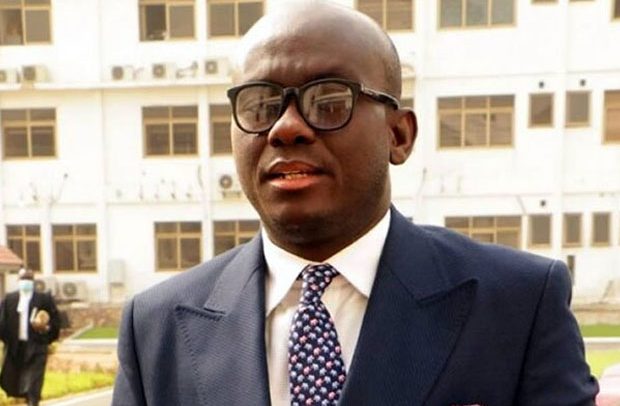Godfred Yeboah Dame
An Accra High Court has granted a petition by the Attorney General, Godfred Yeboah Dame, to wind up Q-net Investment Limited, for operating what is akin to a ponzi scheme and swindling unsuspecting customers.
The Attorney General (AG) had gone to court seeking the winding up of Q-net pursuant to Section 84(2)(d) and (e) of the Corporate Insolvency and Restructuring Act, (Act 1015) for engaging in illegal activities other than what it was registered to do.
The AG sought three reliefs, including an order for the official winding up of the company, an order restraining the members, directors and officials of the company from exercising such powers relating to the purported business of the company disclosed on its document of incorporation.
Mr. Dame in his petition before the court argued that Q-net was being operated for criminal and illegal purposes or carrying out business not authorised by its constitution, contrary to the national interest.
Court documents per the AG’s petition indicated that Q-net was registered for the principal business of mining, oil and gas, real estate development, farming, transport services, building construction, import and export services and civil engineering.
According to the AG, Q-net is part of a network of a multinational marketing company owned by Quest International or QI Group, with its headquarters in Hong Kong whilst its West African offices are located in Ivory Coast, Nigeria, Mali, and Ghana. Their Ghanaian branch is said to be dominated by Togolese, Ivoirians, Nigerians, Burkinabes and Malians.
The AG in his petition stated that hundreds of victims of Q-net’s dishonest and illegal activities were in the Bolgatanga Municipality, and community leaders, including traditional rulers had expressed concern about the security threat the operation of the company posed to their communities.
It was the case of the Attorney General that the widespread criminal and illegal purposes for which Q-net was being operated, contrary to its stated incorporation purpose, grossly undermined its existence in the Ghanaian communities, posing a direct security threat to the peace, economic and social stability of parts of the country, thereby requiring the AG to take steps to wind it up to protect the national interest.
The company did not enter appearance and the AG provided corroborative statements of two witnesses who told the court about the devastating effects of the activities of Q-net in the Upper West Region, by promising them nonexistent jobs in the oil and mining sectors and have succeeded in doing so by taking various monies ranging between GH¢5,000 and GH¢15,000 from them.
The court, presided over by Justice Jennifer Dadzie, after examining the facts of the petition held that the monies obtained by Q-net Investment Limited from its activities represent the proceeds of crime, and also found that the failure of the company to explain the nature of its activities and what it was doing with the monies, short of laundering the money is indicative of the company operating in an illegal or objectionable manner.
“Where established companies are engines of illegality, having deviated woefully from what they were established to accomplish, their continued existence must be immediately apprehended. Winding up is necessary to put an end to that unlawfulness. The petition of the petitioner to wind up the respondent (Q-net Investment Ltd) is hereby granted as prayed,” the court ruled.
“It is hereby ordered that the respondent, Q-net Investment Limited be and is hereby wound-up,” the court added.
Justice Dadzie further ordered that the members, directors and officers of Q-net Investment Limited are restrained from exercising such powers as are ordinarily conferred on them by the then Companies Act 1993, Act 179, under which it was incorporated and the constitution of the company disclosed on its documents of incorporation and such other business that the company may purport to undertake in Ghana and the disposal of any assets of Q-net Investment Limited.
BY Gibril Abdul Razak

